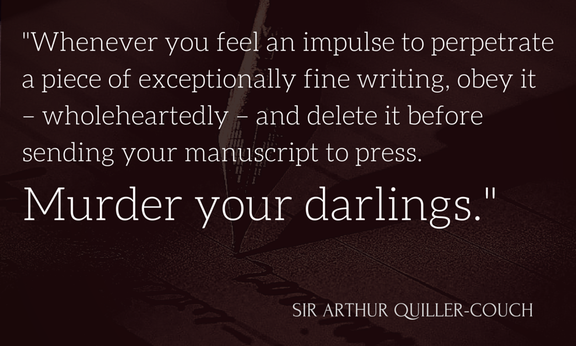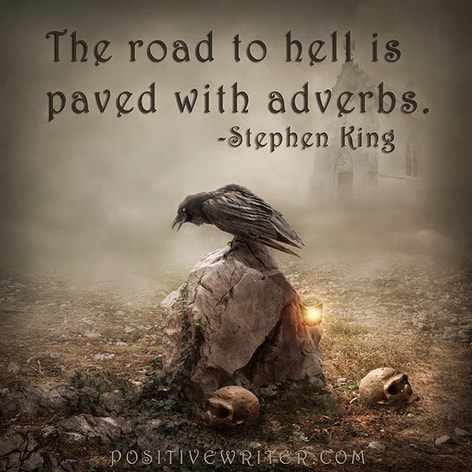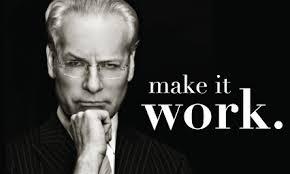|
"Jagged Little Pill" In general, it is difficult for people to take criticism, especially criticism of something they have created and hold dear. This is true of writers, specifically this one right here. My rational mind knows how important the editorial process is. My realistic mind understands the value of harsh, yet well-meaning and probably accurate, beta-reader feedback. When I send a manuscript for review, I brace for the worst. Suddenly, insecurity trumps pride in the piece of work I have just created after months or years of anguish. It feels a bit like a designer sending a favorite piece down the runway for judgement on Project Runway. No matter how constructive the criticism, how accurate the suggestions, or how valuable the feedback, there's always a small flame of dismay. You mean, it's not perfect? That's a hard pill to swallow. Old Books versus Modern Language I love reading classics and old books that I find at our local recycling center. There is just something about the language used back in those days. The vocabulary flows with an elegance difficult to find in modern fiction. So many times, I have started reading a modern novel only to run across a string of F-bombs within the first few paragraphs. I find the gratuitous use of expletives not only distracting, but a cheap and boring way to "add grit" to a character. In most cases, it feels lazy. And I am definitely not a prude, given my taste in music (i.e. Nine Inch Nails, Slipknot, 5FDP, etc.) When modern editing rules are applied to those old books, many would fail the test. A famous and popular rule of thumb in the writing world is to cut out all adverbs. All adverbs! I remember taking this advice to heart with my first novel, Mother's Nature. I used the "find" function in MSWord to locate all adverbs and I slashed them. While the exercise illuminated an overuse of adverbs, there was no way I could rid my story of all traces and still have it be readable. Now I simply keep an eye out for adverb abuse while writing. Do you know how many adverbs there are in Dickens? Faulkner? Steinbeck? Everything in moderation, Mr. King. Although, maybe with adverbs slightly less moderate. (See what I did there?) Kill 'Em All...or not I understand the intention of the advice to "murder your darlings". The purpose of writing fiction is to convey a story. If the writing is too flowery, it can distract readers and detract from the story. When you've labored over a favorite scene, when you've dreamed about it, when your pulse quickened as you wrote it, when you found yourself so completely immersed in the scene that you lose all sense of time and place...that scene is YOUR PRECIOUS. When anyone suggests cutting that precious scene, you can't help but feel like poor Gollum. You wants it. You needs it. Sure, you write for the reader, but you also write for yourself, for the pure joy and satisfaction of writing. Why would you destroy the thing you love most? Gollum is the ego and he must be dealt with. After a period of wallowing in self pity, a time of self-reflection begins to take over and you succumb to reality. You realize that maybe, like a fledgling designer on Project Runway, you have over-designed your masterpiece. Fine. My precious needs to go. Hibernate Your Darlings I read a good article in defense of not killing your darlings which gave me encouragement to--at the very least--save my precious passages in a separate file for later use. Who knows? Maybe that beautiful writing might come in handy somewhere else? Maybe the old rule of taking off one piece of jewelry before leaving the house holds true. One doesn't throw away the bracelet/necklace/ring, one saves it for another day. This makes it easier to cut a favorite scene or sentence from a writing project, knowing it's not going away forever. It allows a sense of freedom in that I can always pull it out again later and make it work in the same story, perhaps in a different place, or in another project all together. So, hibernate your darlings and... There is so much advice for writers out there. It's a wonderful thing. However, after three novels, I've learned to take it all in moderation and write the way I want to write. Therein lies the satisfaction for me, and hopefully the reader.
0 Comments
Leave a Reply. |
About meI write novels and poetry and this blog. Categories
All
Archives
January 2022
|





 RSS Feed
RSS Feed
